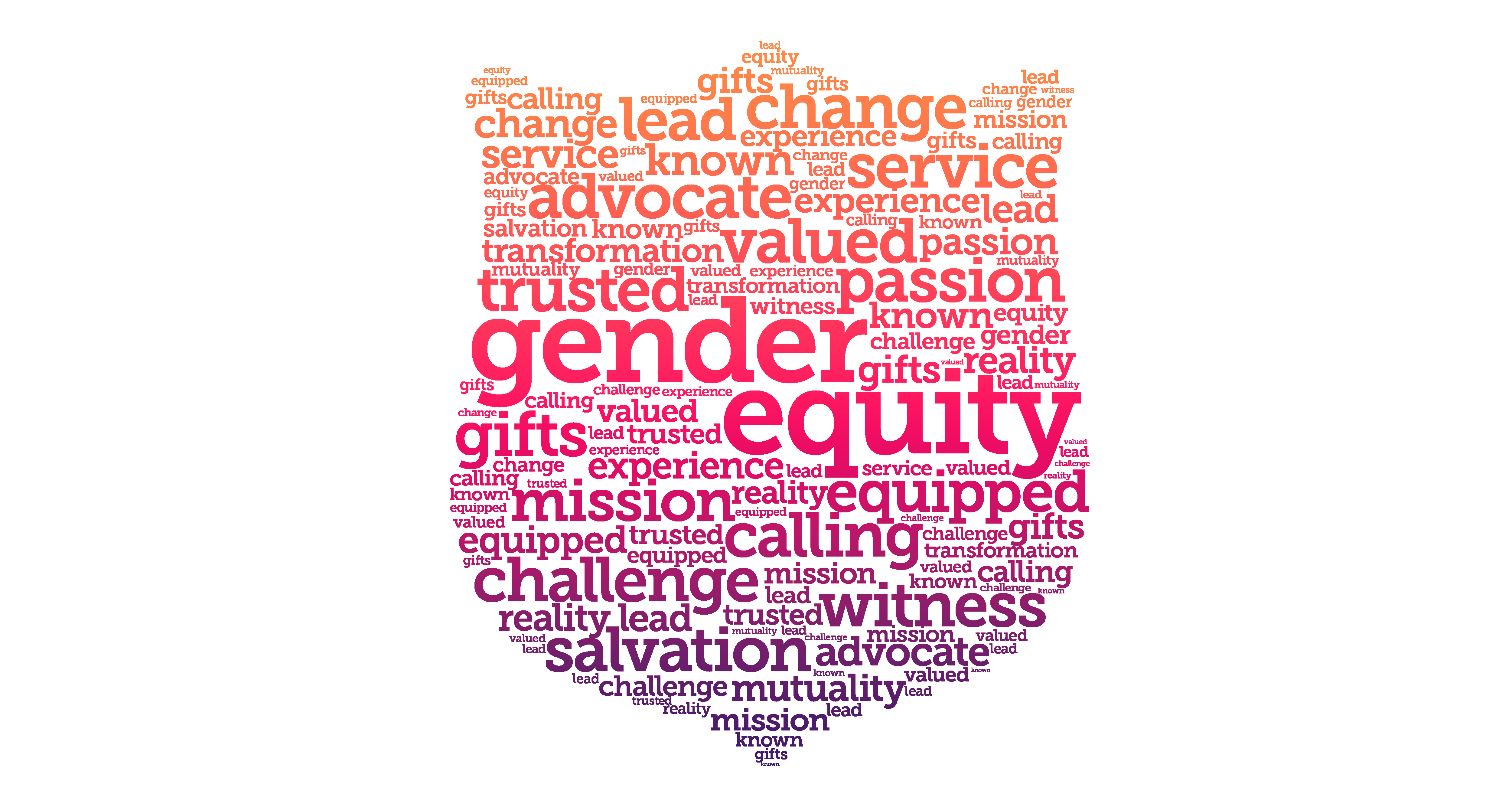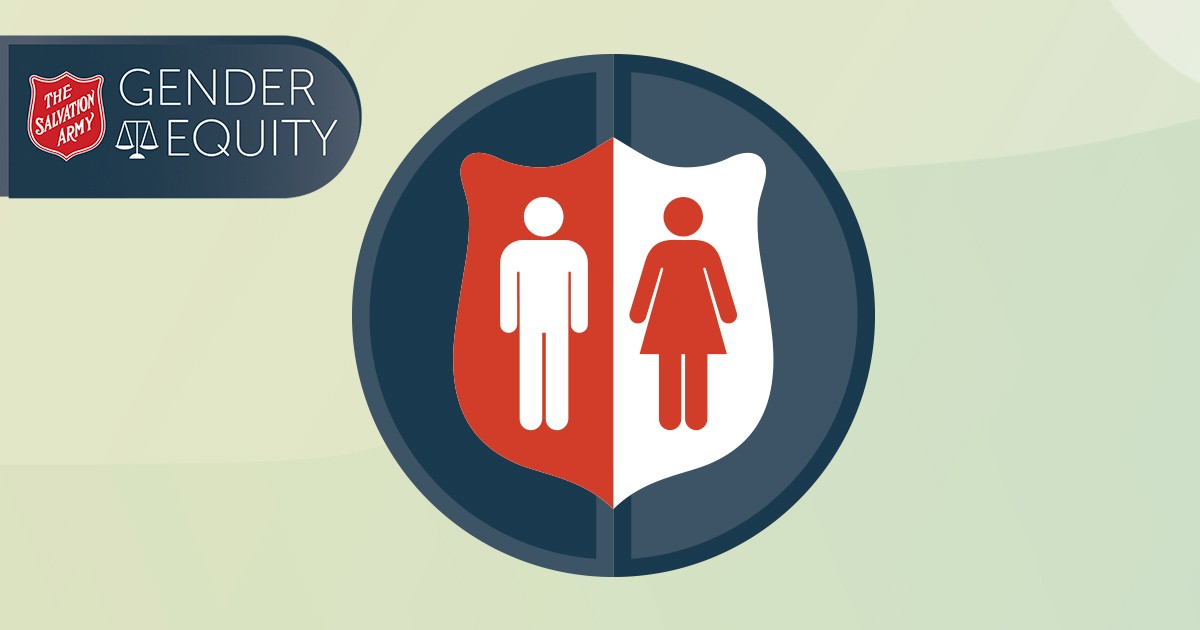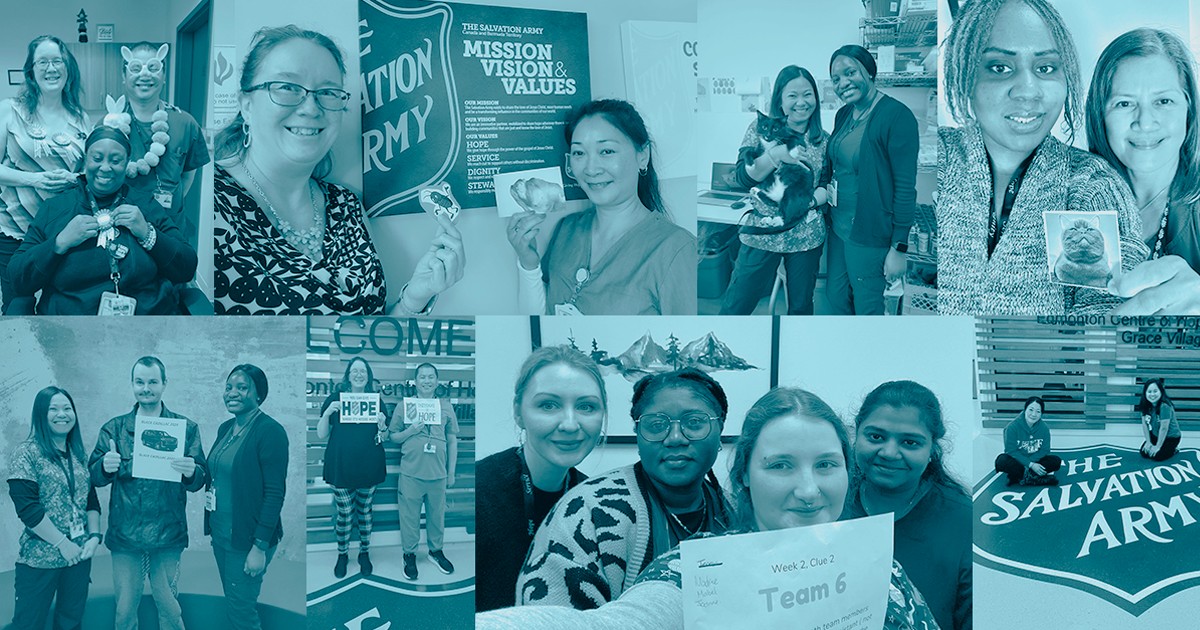“All in my heart, Lord, thou canst read” (SASB 607). God used the words of this song from the Salvation Army song book to challenge me as I wrestled with a calling to officership. I had a good job, a nice home and a young family, but deep down I knew I was called to full-time ministry. All that remained was my surrender. In 1999, after eight years of running from God, I attended a congress and these words became my consecration: “Lord, in my life thou shalt have thine own way … I will surrender the dearest and best.”
The struggle was so real and the surrender so total that I was not prepared for what came a few years later—the realization that my gifts and calling would not be fully valued and utilized. In fact, a divisional appointment in our third year of officership left me without a ministry description at all. There were expectations of and ministry opportunities given to my husband, but not to me. Unfortunately, this is all too common a story. As the advocate for gender equity in Canada and Bermuda, I am charged with leading the work that will change this reality for women officers within our ranks.
It has been a little more than two years since Commissioners Floyd and Tracey Tidd, territorial leaders, appointed the first-ever advocate for gender equity in our territory, Captain Kristen Jackson-Dockeray, whom I succeeded in 2021. Their goal was to address gender inequity among officers and increase the number of women in leadership. A tremendous amount of work has transpired since that time, culminating in a final report and presentation to the spiritual and denominational affairs board in May 2022, with a formal response received from that board in October. I am thrilled to share an update on this work with Salvationists across Canada and Bermuda.
Task Force
In fall 2020, formal and informal interviews were conducted with 75 officers from across the territory, with representation from all divisions and appointment types, as well as executive leaders. Any effort for change must be grounded in the lived experience of women officers. Numerical data alone is not sufficient to reveal the extent of inequity in our territory, especially when married couples often show up together in the same leadership spaces. Equity is measured by equal voice and power.
It was important, therefore, to examine the organizational culture and explore ways to shift that culture. Culture is defined as the difference between “what we say about what we are” and “how things actually are.” What we say we are is egalitarian [International Positional Statement]. What we heard from women officers echoed the words of General Brian Peddle in his 2021 article about gender equity [“Lots of Talk, Not Enough Action? Making Gender Equity a Reality,” The Officer, April-June 2021]: “We speak of a history and theology that convey our beliefs are clear, but our actions do not reflect appropriate behaviour as, for example, there are few women in positions of executive leadership. They are often not at the table when setting policy, strategy, direction.”
A gender equity task force, made up of male and female officers and employees, as well as human resource professionals from outside the organization, studied the interview responses. Subcommittees looked at the emerging themes and explored not just the symptoms of inequity but dug deep to uncover the root causes. Building on equity, diversity and inclusion best practices, recommendations were formulated that could lead to intentional, strategic and sustainable transformation. These were compiled into a final report with more than 40 recommendations for change.
In undertaking this work, the task force was motivated by a vision of a flourishing Salvation Army that is innovative and influential, and which attracts and utilizes the best that both men and women have to offer. We envisioned a Salvation Army culture where it is normative for officers to feel valued, known, equipped and trusted to fulfil the Army’s mission. This is The Salvation Army I envisioned when I walked through the doors of the College for Officer Training in 2000. This is The Salvation Army I am committed to helping create. The task force report and recommendations were made in the hopes that barriers could be named and removed, inequities could be addressed, and women and men could reimagine and fully participate in officership.
Report Recommendations
At the foundation of this work was the belief that equity is the heartbeat of God. The creation account in Genesis 1 reveals God’s original design for mutuality between the sexes, and co-stewardship of creation ["Designed for Equality," Salvationist, January 2022]. Hierarchy only entered the human story as a curse after the Fall. In considering that God calls and gifts women, as well as men, for sacred service, the opportunity must be given for women to not just preach, but to lead and serve alongside their brothers. The Spirit gifts women “for the good of all” (1 Corinthians 12:7 NLV), therefore, “If someone has the gift of leading other people, he [or she] should lead them” (Romans 12:8 NLV). The responsibility to steward the gifts and callings of women and men is a solemn one and critical for mission impact.
To be clear, the task force was not saying anything new. In our research, we uncovered previous reports that outlined concerns and cautioned about systems and practices. The fact that we are still talking about this means that previous recommendations were not put into action to any great extent. As Dr. Kimberley Mullins, the current chair of the task force, writes in the introduction to the report, to commission this work without active implementation would be to “diminish our service to God.” Further, “in perpetuating negative experiences, limiting participation and constraining many of our future leaders, we will fail in our duty to serve both the individuals who have dedicated their life to this calling and the calling itself.” The report highlighted that equity is not just the right thing to pursue from a theological perspective, but it is also urgent from a practical standpoint. We no longer have the luxury of underutilizing nearly half of our officer force. The work of “publishing salvation to the world” requires each officer, man or woman, to be fully engaged.
Part of the gender equity advocate’s initial work was to influence change that could happen quickly. Some examples were: removing the default practice of assigning system or process approvals (e.g., in TEM, Business World, etc.) to the officer husband in a joint appointment; alphabetical ordering on all official officer lists; and adopting a parental leave policy.
Other recommendations are not as quick or easy to implement as they involve deeply cultural and systemic issues. For instance, included in the recommendations is a call for an intentional strategy to realign and clarify our distinct and prophetic witness of egalitarian theology, such as resources and education around discipleship and officer marriage enrichment. In addition, a large section of the report has to do with building a strong, sustainable human relations system for officers. In fact, improving these systems will benefit all officers, not just women.
Another area of focus was policies that negatively impact single and single-spouse officers. Although considered to be non-gendered, at the time of research, 87 percent of single officers were female. As a result, the gender equity task force examined factors (e.g., leave, compensation, retirement policies, etc.) that had the potential to particularly disadvantage single women officers.
One of the overwhelming themes emerging from the data was the prominence of women’s ministries. While there is a place for gendered ministry, it was perceived that The Salvation Army’s internal culture relegates women to women’s ministries (sometimes referred to as a “default appointment”). A new model needs to be envisioned so both officers in a couple are matched with ministry areas according to their individual giftedness and passions.
Leadership Response
The task force has been pleased by the commitment of leadership to address the systems, procedures and policies that have perpetuated inequity. The initial response to the recommendations has been very positive, with most of the recommendations gaining approval to either implement right away or work with other departments on advancing the proposed change. In fact, some of what was recommended is already underway because some departments had already identified that changes to processes and systems were necessary to improve officer experience. This is hopeful!
The next step is for a new working group to take the recommendations to the next level of implementation, in partnership with the relevant departments, leaders and officers that can effect change. A networking group of women officers will also be identified who can give feedback and offer insight into what the ongoing picture of equity looks like across the territory.
Nearly 21 years after being commissioned as a Salvation Army officer, I have never been more convinced of my calling. I am in awe of how God has worked in and through my story, including giving me a platform to effect change and improve the experience of officership for women and men, single or married. In closing, the poignant words of Dr. Mullins inspire us all to advance the cause: “The world needs The Salvation Army, and The Salvation Army needs the dedicated, engaged and unrestricted energy of its entire leadership in order to thrive and serve.”
Major Pamela Pinksen is the territorial advocate for gender equity and corps officer and executive director at Kitchener Community Church and Family Care Centre, Ont.
Click here to download the final report of the gender equity task force.
Illustration: Lisa Suroso










Comment
On Wednesday, February 15, 2023, Renee McFadden said:
Leave a Comment